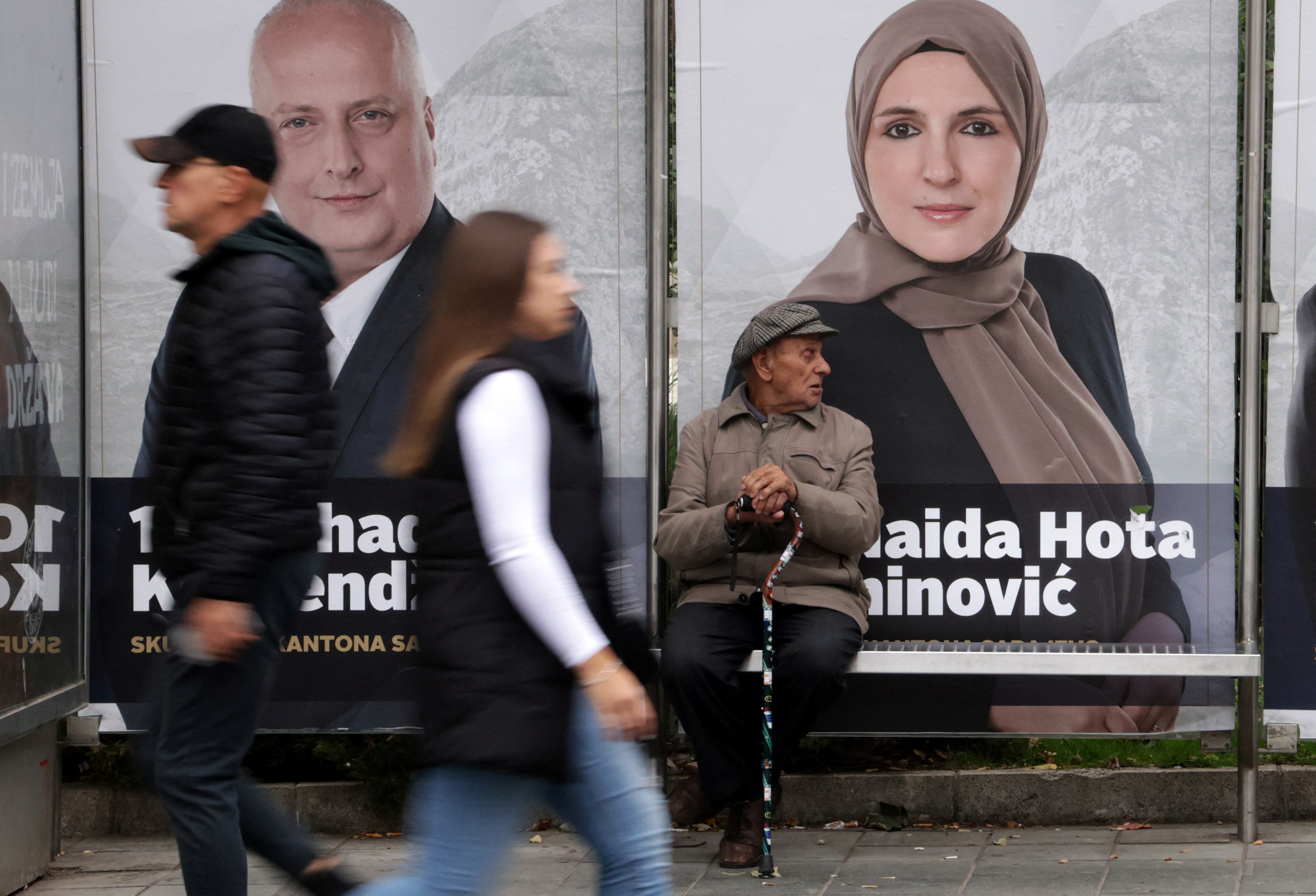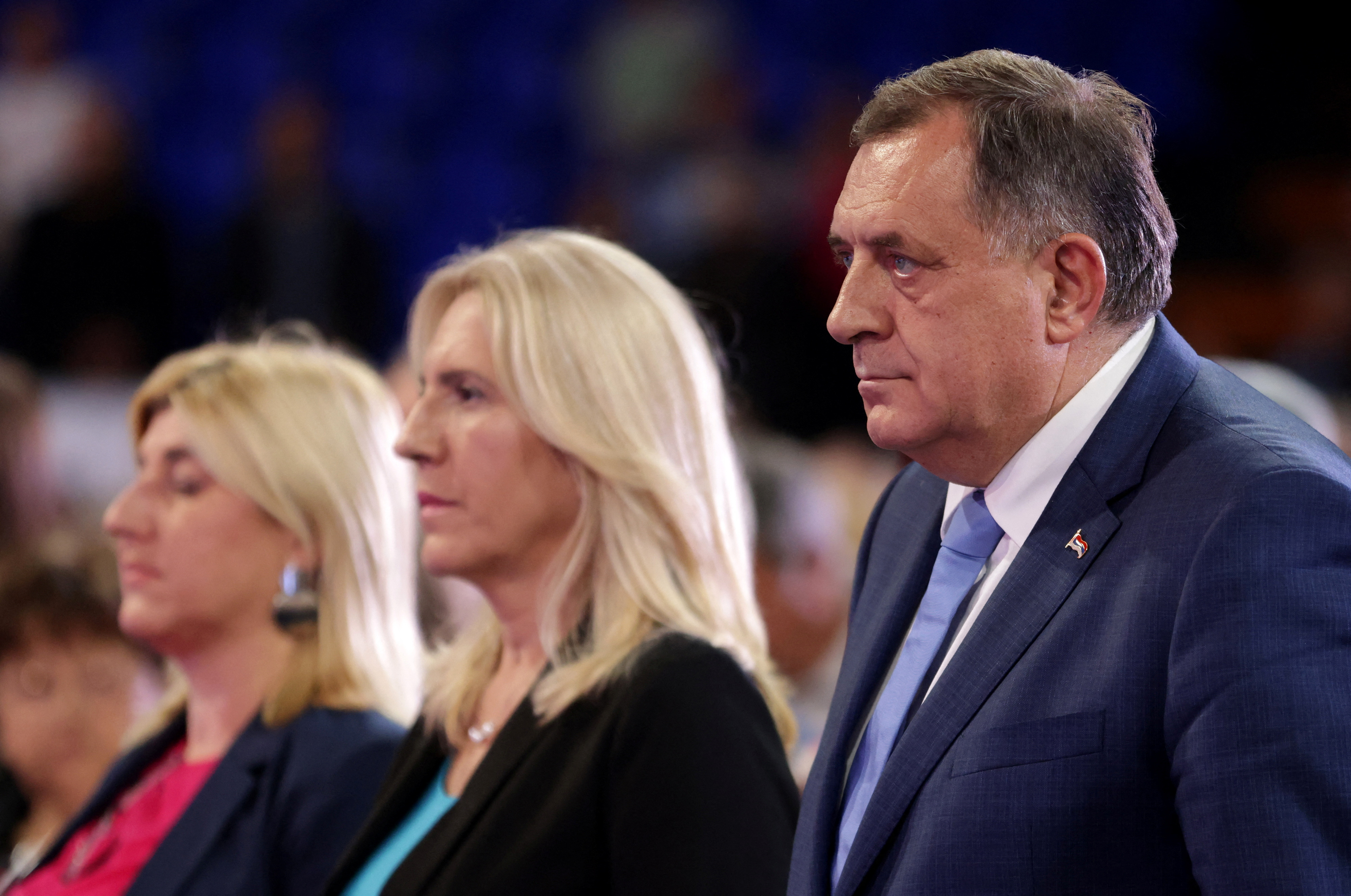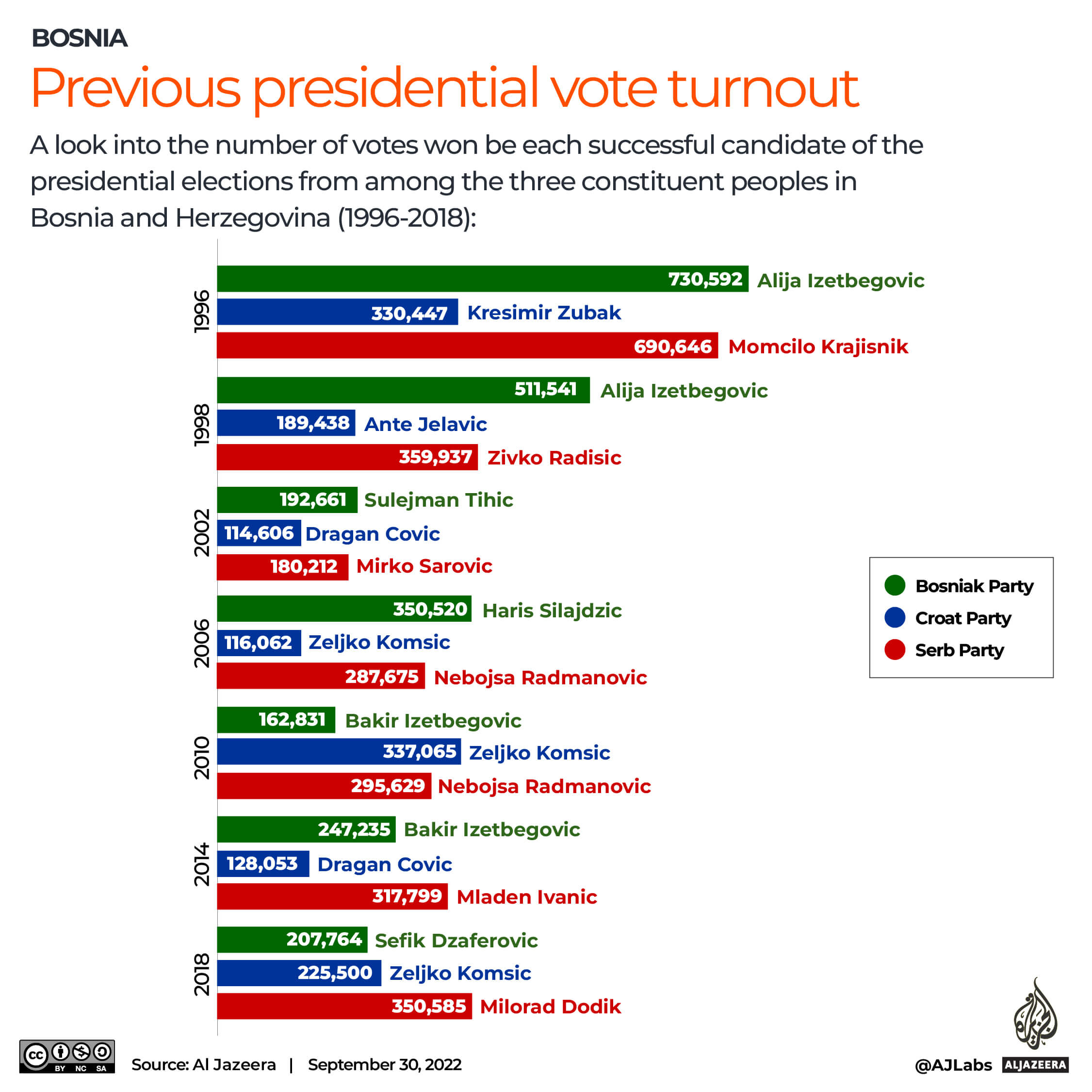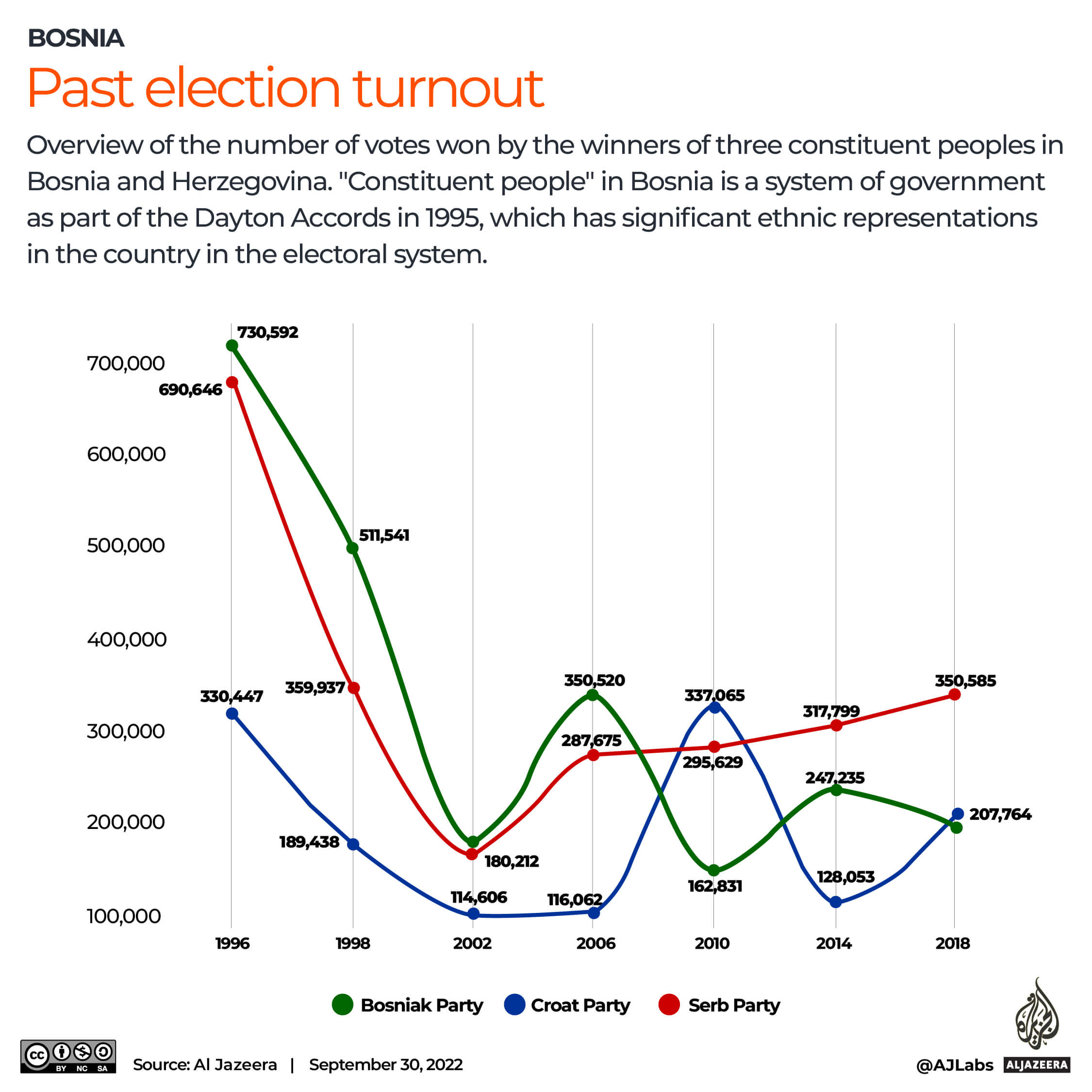
Voters will head to the polls in Bosnia and Herzegovina on Sunday to take part in what experts say are the most important elections in the country since the war.
The signing of the Dayton peace agreement in December 1995, ended the war in the country, but it also created the world’s most complicated governing system, divided along ethnic lines.
Since then, two autonomous entities have divided the country – the Bosniak-Croat Federation entity and the Serb-run Republika Srpska entity.
Three presidents – a Bosniak, a Croat and a Serb – rotate the chairmanship of the presidency. The decentralised political system has 14 governments and 136 ministers.
On Sunday, about 3.36 million Bosnians will be choosing their three presidents as well as politicians for the parliament’s lower house and regional leaders and assemblies.
Who’s running for president?
The current Serb member of the presidency, Milorad Dodik, leader of the Serb nationalist, secessionist SNSD party is running for president of Republika Srpska.
A supporter of Russian President Vladimir Putin, he is most known for threatening over the past 15 years for Republika Srpska to secede and join neighbouring Serbia.
His SNSD ally, Zeljka Cvijanovic, who is the incumbent president of Republika Srpska, is running as the Serb member of presidency this weekend. According to analysts, they are both expected to win.
But much of the discourse this year has focused on who will win specifically the Croat seat, where the stakes are the highest.

Zeljko Komsic, the incumbent Croat member of the presidency of the multiethnic, centrist Democratic Front party is running against Borjana Kristo of the right-wing Croat nationalist HDZ, a party which has glorified and honoured convicted Croat war criminals.
The leader of Bosnia’s HDZ is Dragan Covic, who infamously used Bosniak detainees from Croat concentration camps as slave labour in wartime Bosnia.
Although Dodik and Covic are not running for the presidency this time due to strategic reasons, according to analysts, they will still be calling the shots in politics through their fellow party candidates Cvijanovic and Kristo.

Komsic, a veteran of the wartime Bosnian government army, formed the Democratic Front in 2013, which aims to form a civic state with equal rights for all, without ethnic segregation.
In 2018, he beat Covic for the Croat seat by more than 70,000 votes. Croat nationalists claim Komsic was not elected legitimately as he was supported with votes by Bosniaks who outnumber Croats in the Federation entity.
For Bosnians living in the Federation entity, both Bosniaks and Croats can choose to vote for either the Bosniak or Croat member of the presidency.
For years Covic and his party, as well as officials from Croatia proper, have been heavily lobbying the West to change Bosnia’s election law, arguing that votes should be counted from cantons with a clear Croat majority in order to outvote Bosniaks.
This summer, Bosnia’s High Representative Christian Schmidt, who is appointed by the international community to oversee the implementation of the Dayton peace agreement and the country’s democratic transition, was planning to amend the election law just weeks before the election, sparking backlash and mass protests.

Critics argued his proposal to be segregationist is akin to legislating “apartheid”, as it would give a disproportionate degree of political influence to Croat and Serb nationalists and further deepen discriminatory ethnic divisions.
This week, the Croatian government admitted on Twitter that they had “for months” negotiated “thoroughly and discretely” with Schmidt about making the proposed apartheid-like changes to Bosnia’s electoral law.
Ismail Cidic, president of the Sarajevo-based Bosnian Advocacy Center, wrote on Twitter that Schmidt was cutting a deal with Croatia, “a country that was not only Bosnia’s war-time aggressor but also one that has flagrantly disregarded Bosnia’s sovereignty for the past 3 decades”.
Another "Balkan bombshell!"
Today, the Croatian government openly admitted to collaborating w/ @OHR_BiH on proposed apartheid-like changes to Bosnia's election law, implicating @OHR_BiH's Christian Schmidt in the worst scandal since he took office. 1/3 https://t.co/BkzDW6f2au
— Ismail Ćidić (@IsmailCidic) September 26, 2022
On Thursday, German media reported that Schmidt plans to enforce the Croat-favoured election law changes right after the elections.
Cidic told Al Jazeera that the upcoming elections “are incredibly important for the country’s democracy and security due to the recent dangerous anti-constitutional efforts led by HDZ and SNSD”.
“Dodik has already announced the continuation of the HDZ-SNSD coalition, and if they win two of three seats of the presidency, an even worse security crisis may unfold,” Cidic said.
“That is why it remains imperative that at least some HDZ candidates, ideally SNSD as well, are kept away from power whenever possible.”
If the HDZ and SNSD candidates win the Croat and Serb seats of the presidency, Covic and Dodik will gain control over the state’s central bank, budget and armed forces, due to ethnic quotas, Bosnian investigative news website Istraga reported earlier this month.
Whoever wins these seats will also determine whether two-thirds of ambassadors will work in Bosnia’s interests or not.







